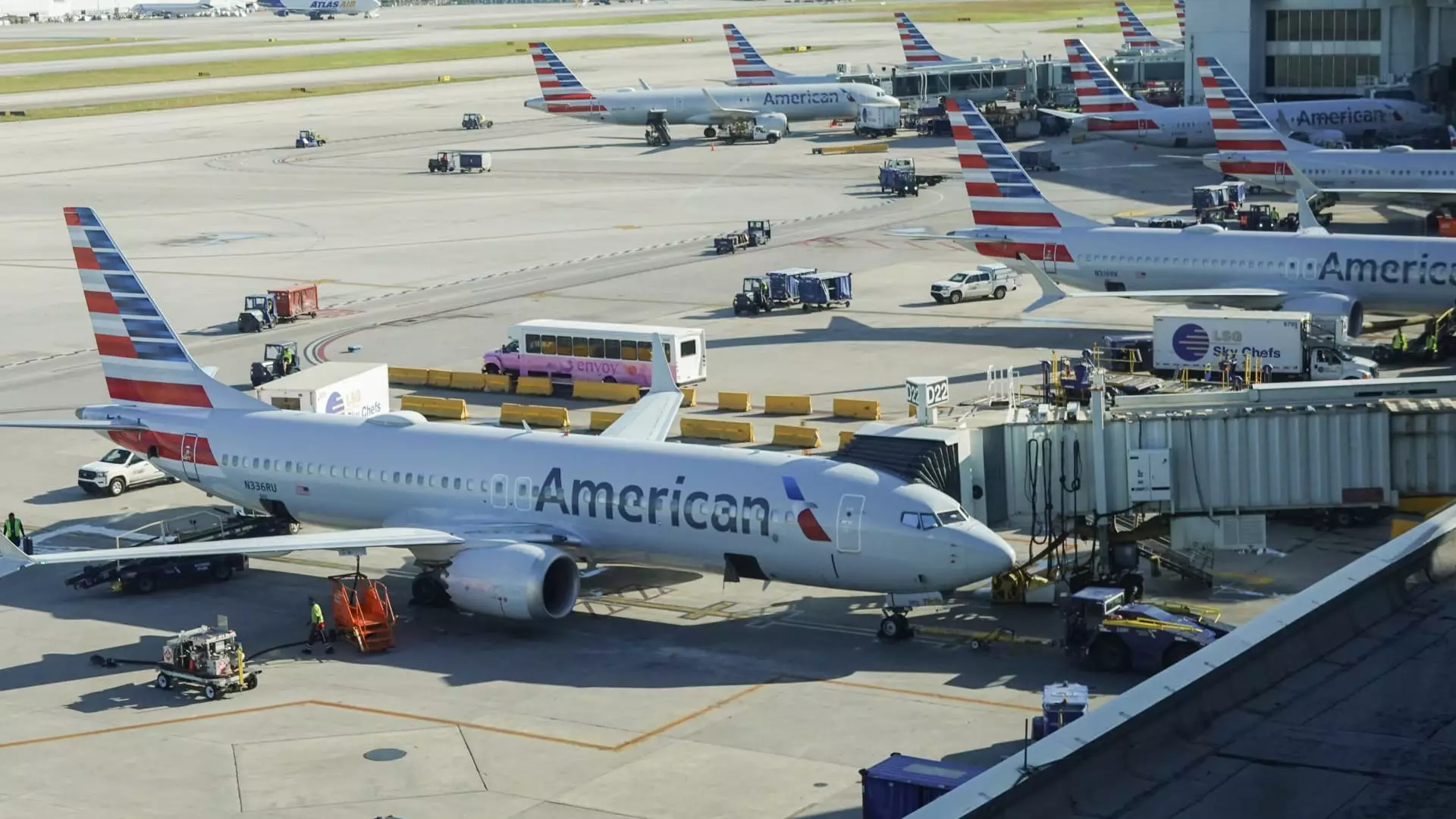In an unexpected turn of events, American Airlines grounded its flights across the United States on a Tuesday morning due to a technical issue that raised concerns during a crucial holiday travel period. Just as airlines prepared for what they anticipated would be a busy season filled with record passenger numbers, the mid-morning halt caused significant disruptions to travel plans. Fortunately, the grounding was lifted by 7:55 a.m. ET, with operations resuming in less than an hour, according to a spokesperson for the airline.
The source of the disruption was identified as a problem related to a vendor-supplied platform integral to managing critical data, such as aircraft weight and balance, both of which are essential for safe flight operations. The swift action taken to resolve the issue not only highlights the complexities of modern aviation technology but also underscores the importance of reliable systems in ensuring flight safety and efficiency.
American Airlines proactively requested the ground stop, a standard protocol employed by airlines to mitigate chaos at destination airports during flight disruptions. The Federal Aviation Administration confirmed this request, noting that ground stops are routinely instituted not just for technical failures but also due to severe weather conditions. These procedures aim to prevent situations where incoming flights are unable to land due to crowded terminals or lack of available parking slots.
While the ground stop may have been fleeting, it serves as a reminder of the challenges airlines face, especially during peak travel times when operational integrity is crucial. The potential for an overwhelmed airport scenario intensified worries for passengers eager to reach their holiday destinations.
This incident sheds light on a broader concern within the aviation industry: the infrastructure and reliability of critical technology systems that airlines depend on. The past few years have shown that disruptions can escalate rapidly, as witnessed during mass flight cancellations such as Southwest Airlines’ operational fiasco at the close of 2022 and Delta’s recovery difficulties linked to the CrowdStrike outage earlier this summer. Such events have raised questions about the dependency on vendor platforms and the interconnectedness of technology in aviation.
Despite American Airlines’ commitment to maintaining a seamless travel experience, this hiccup serves as a crucial indicator of the aviation industry’s ongoing vulnerability. As the demand for air travel increases, airlines must invest in reliable technological solutions to ensure they can manage operational challenges efficiently while minimizing impact on passengers.
While American Airlines adeptly handled a brief flight ground stop, the incident reinforces the need for ongoing scrutiny and enhancement of technological systems within the aviation sector, particularly as the holiday rush approaches and travel spikes are expected. The airline has since issued an apology and is continually evaluating their systems to prevent similar occurrences in the future, making passenger safety and satisfaction their top priorities.


Leave a Reply